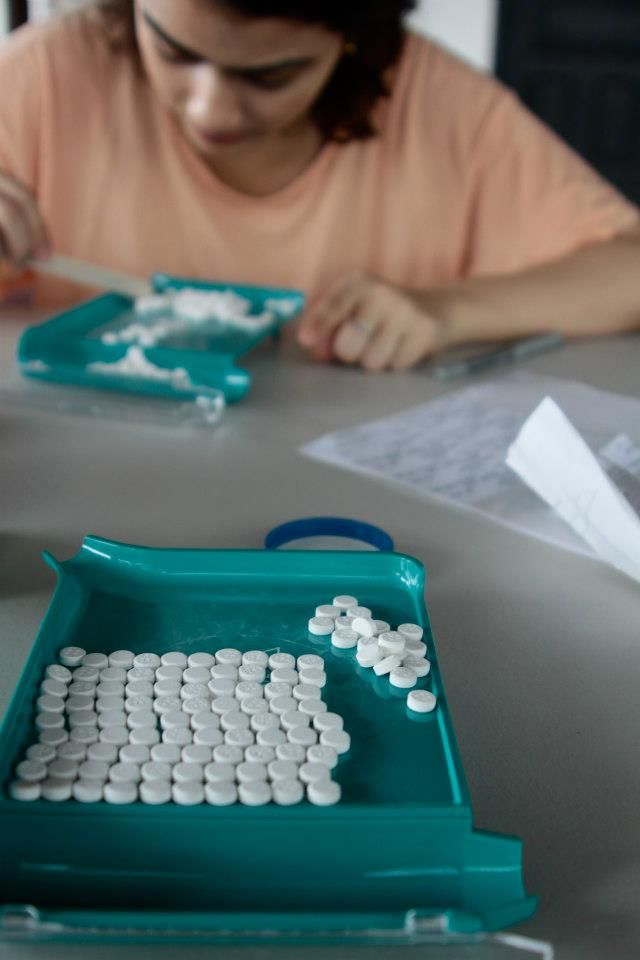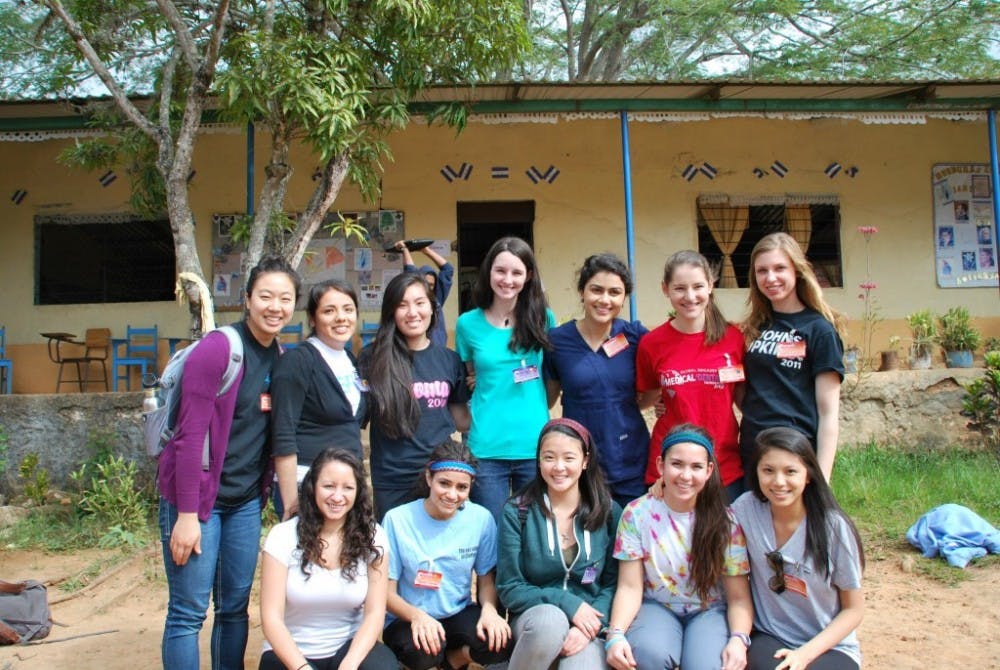During Intersession, 25 students spent six days in Honduras sorting medications, shadowing doctors, seeing patients and running a temporary clinic for nearby citizens. The medical care they provided motivated citizens from all over the area to travel to the temporary clinic. Some citizens were rumored to have walked for over two hours to receive the medical care that Hopkins students were helping to deliver.
“Things that we take for granted totally change their lives in three days,” sophomore Richard Um, who participated in the most recent trip, said.
For the second portion of the trip, the students traveled to a more rural area of Honduras where they were introduced to a few local families. It was there that they began the public health portion of their crusade.
The students mixed vats upon vats of concrete, and they replaced many Honduran families’ dirt floors with cement. They also provided the families with a safe, well-ventilated Ecostove for cooking and replaced any rudimentary bathroom accoutrements with complete hygiene stations.
The students traveled to Honduras as members of the organization Global Brigades, which is dedicated to improving under-resourced communities through volunteer efforts aimed at advancing health and economic goals. It is the largest student-led global health and holistic development organization in the world, with more in-field volunteers than the Peace Corps.

Global Brigades is comprised of volunteers from 110 different university chapters. During the brigade to Honduras over Intersession, the students from Hopkins worked alongside students from the University of Virginia. Worldwide, Global Brigades offers brigades to several other nations as well, including Panama, Nicaragua and Ghana. The Hopkins chapter currently only travels to Honduras.
“You really get to see public health in practice and get to do it with your own hands and feet. You’re literally mixing concrete on the ground with other people,” junior Elisabetta Hobbins, the current head of the Public Health Brigades at Hopkins, said.
The Hopkins Chapter of Global Brigades offers five different brigades in total, for Medical and Dental, Public Health, Engineering and Microfinance. Brigades are offered at three points throughout the academic year: Right before the year starts, over Intersession and immediately after classes end in May. Each brigade lasts for approximately a week and is funded by the students. The money each student contributes goes almost entirely toward providing the medications, equipment and materials that will be used throughout the brigade.
“Global Brigades is an amazing organization that I’m so honored to be a part of. It’s holistic and transparent. The money you put toward your brigade doesn’t go towards overhead, it goes towards these communities, and you see that work play out while you’re there,” Hobbins said.
The students who participated in the Intersession brigade experienced the Hopkins chapter’s first-ever hybrid brigade, a combination of the medical brigade held during the first three days of their trip and the public health brigade held during the last three. This hybrid brigade is the newest edition to Global Brigades at Hopkins. Hybrid brigades offer students the option to choose two brigades over which to divide their time.
“We were able to see more of a holistic model of how medicine impacts a country like Honduras,” Um, a first-time Brigader, said.
Students need no prior experience to participate in a Brigade. According to Um, the majority of his training occurred through meetings at the end of the fall semester. He and his fellow Brigaders were trained in basic skills, such as taking vital signs and speaking elementary Spanish. It is also not necessary that brigaders belong to any specific major. Being an active member simply requires committing to an upcoming trip and fundraising the set amounts of money required for this trip.
While on a brigade, Hopkins students stay at one of the Global Brigades compounds set up in Honduras. The compound houses students from several universities at once, as multiple brigades are often occurring simultaneously. Almost every brigade includes not only work to help the community at large, but also specific work dedicated towards educating local children in the area. On the brigade that took place this Intersession, the students spent time instructing children on proper dental hygiene.
“The lasting impact was going in, getting connected with one family, helping that family for the whole week and completely changing their lives,” Hobbins said.
This semester, the Hopkins chapter of Global Brigades hopes to expand its influence to local areas. The organization will partner with United Way of Central Maryland. In doing so, students will be able to promote self-sustainability not only abroad, but here in Baltimore as well. The change will also serve to promote a greater level of student involvement by enabling students to make a difference even if they choose not to travel. In addition to expanding the reach of the organization, the Hopkins chapter plans to launch its first official engineering brigade this spring.
The organization’s current chairperson of three years is Senior Nirali Chauhan. She serves to coordinate the brigades occurring on campus, recruits volunteers from Hopkins and collaborates with other schools, as well as the organization’s national board. With regard to current action, Global Brigades continues to seek out and welcome new members. Currently its members are working towards preparing for the upcoming brigade at the end of this year. This brigade will again take place in Honduras and will run from May 15 to May 21.
“For everyone that has gone, it’s a life changing experience. It’s a humbling and important experience to have. Global Brigades, for me at least, brings me back to my calling and why I want to be a doctor,” Hobbins said.





